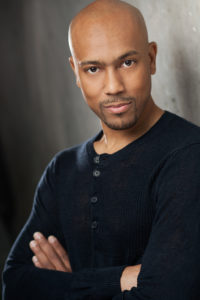A guest post by Ramón Terrell
If I’m to allow myself to be dramatic, here, I’d say that adaptations are one of the most controversial aspects of the entertainment field in my opinion.
Why is this?
There is more than one answer to that question, and it also depends on the individual circumstances. For my part, I’m going to talk about adapting novel to film. Anyone who has watched a film that has been adapted from a novel can relate to that feeling of “hey wait, that didn’t happen. She didn’t go there.” Or perhaps the disappointment at the omission of a certain character, creature, or event. Whole plotlines might have been left out, or character personalities altered in some way. There are a myriad of details that can be changed, excluded, or even added in, to a novel-to-film adaptation.
There can also be cultural reasons for an adaptation. Some characters might be changed in an effort not to offend a certain ethnic group (at the expense of the negatively affected group) that might represent the largest or one of the largest consumers of that film. And sometimes, it can be something as simple as fluff stuffed into a project to extend its size.
There is a little old book by the name of The Hobbit, that was adapted into three little old films. Anyone who’d read the book immediately arched an eyebrow. Three films? The single Hobbit book was shorter in length to any one of the three Lord of the Rings books, and THAT was a trilogy. So how could they possibly stretch that small book into three movies? I could practically see the meeting in my mind, between Peter Jackson and the bigwigs up at New Line Cinema.
“Hey Peter. Fantastic work on the Lord of the Rings movies! Simply brilliant! We want to do The Hobbit.”
“Well, okay,” Peter says. “I could get started on the movie…”
“Movies.”
“…Movies? Um. Okay. Well, I can get started on the first movie after I wrap a project I’m working on, and begin the second one after that.”
“And the third one right on its heels, right?”
“Um.” Now Peter is scratching his head. “I don’t think we need more than two movies for this. The book wasn’t very big.”
Bigwigs lean forward. “You do remember how much money the Lord of the Rings trilogy made, right?”
Of course, I was not privy to that meeting, and the above scenario is strictly my own speculation on what might have happened. But one thing everyone should know is that films are made to make money. And the Rings trilogy made a lot of that. Dump truck loads of that. So three Hobbit movies was a no-brainer.
Except fluff. Lots of it. Boatloads of fluff. Characters that didn’t exist in the book, love interests that were nonexistent, etc etc. Now, before fans of the movies grab their pitchforks, I’m not bashing them. I will admit that I only enjoyed the first one, and parts of the second, I am not stomping what someone else might have loved. But there was undeniably a good deal of stuffing in that turkey to make it stretch the distance. My point in this illustration is that the adaptation had the prospect of huge dollar signs to a major studio, and they adapted it to film by adding in content.
Reverse the scenario. I remember watching Harry Potter and the Goblet of Fire. There were fans who expressed disappointment at the absence the giant tentacled creature that lived in the lake, or events being rearranged in Prisoner of Azkaban, (hmm. Spellcheck didn’t ding me for that one. Household name success. Sigh) Tom Bombadil was completely missing from Lord of the Rings, Jack Reacher went from an upper six foot tall hulking intimidating giant to mid five foot tall Tom Cruise.
The first in the scenario is likely budget. The tentacle creature would have been nice, but how many minutes would it have added to the film to make sense having it there? Was it necessary to advance the plot in some way? Would the events in Azkaban have made sense in the film if left as is in the book? Would the presence of Bombadil have thrown the whole movie off the rails if they’d kept him? How any extra minutes would the Fae have needed to justify his presence? In the case of Jack Reacher? Well, Hollywood often likes to have a big name attached to a film to ensure its success and their return on investment. It’s a fair concern, but I personally think they might have tried a little harder. I don’t know the details of those decisions, so I can only guess.
These are but a few examples of the challenges of adapting a novel to film. Some details simply must be omitted. The story has to be broken down to its bare bones, only essential elements retained. From that point, they can see what might be added in. In a novel, details, characters, and creatures, etc are a must, in creating a world for people to slip into. In a film, many of those same details don’t work. It’s simply the difference in the two mediums.
I’d like to return to my old friend, Tom Bombadil. He was a character I’d looked forward to seeing in the movie, yet understood why he was omitted. He was an enigma whose presence was open to speculation. One thing was clear, (to me) which was that Tom was representative of the purity, innocence, and power of nature. Its majesty. Tom Bombadil was The Fatherless and Oldest of the Old. He remembered the first raindrop upon the world. Not even the One Ring could tempt him. In fact, it had no effect on him at all.
Now imagine trying to add this character into a movie that was already three hours long in the theater, and four hours long in the extended editions every fan should have already seen 20 times by now? It might have been nice, but probably unfeasible.
One final scenario is the prospect of adapting a visual, or even interactive story into a novel. Instead of having to cut material or alter it, now the writer is faced with having to expound on material that might have had a small presence in the movie. In a film you are given the setting by it simply being there. You see it. The mood is set by the dreary clouds and lightening flickering behind those clouds. You feel the ominous presence in the castle by the subtle inclusion of a baritone moan, or a rumbling hum, the music, low and foreboding.
A novel doesn’t have the luxury of a music score, sound effects, or special effects. All of that has to be created without telling, so that your mind can produce the virtual reality experience of you being there. As a fan of the video game series God of War, I saw the novel for the first game and thumbed through it. I didn’t read the whole thing, but one thing I did notice right off was dialogue between several of the gods. There was never conversation between the gods in the first game, but to add more substance, the author had to bring events that happened behind the curtain onto the stage.
In this world of games, movies, animated movies, episodic shows, and novels, we are seeing stories adapted across all of those mediums. As audiences are more sophisticated than ever before, and the capabilities of the entertainment industry have reached new heights, both sides must meet at a reasonable middle.
At the same time, filmmakers have a double responsibility. They have the task of producing a product that will bring in the revenue necessary to satisfy those flipping the bill, while at the same time keeping true enough to the source material to please fans. It’s not at all easy, and sometimes it fails.
Despite the many failed attempts at adapting a novel to a feature film, I find the possibilities exciting. Now more than ever, film has the ability to adapt stories that were once beyond what special effects and budgeting were capable of. Film has reached a point where its limitations are how much money it can raise to become a reality, and the ability of the creators to properly adapt the story.
Ramón Terrell is an actor and author who instantly fell in love with fantasy the day he opened R. A. Salvatore’s: The Crystal Shard. Years (and many devoured books) later he decided to put pen to paper for his first novel. After a bout with aching carpals, he decided to try the keyboard instead, and the words began to flow.
As an actor, he has appeared in the hit television shows Supernatural, izombie, Arrow, and Minority Report, as well as the hit comedy web series Single and Dating in Vancouver. He also appears as one of Robin Hood’s Merry Men in Once Upon a Time, as well as an Ark Guard on the hit TV show The 100. When not writing, or acting on set, he enjoys reading, video games, hiking, and long walks with his wife around Stanley Park in Vancouver BC.
Connect with him at:


